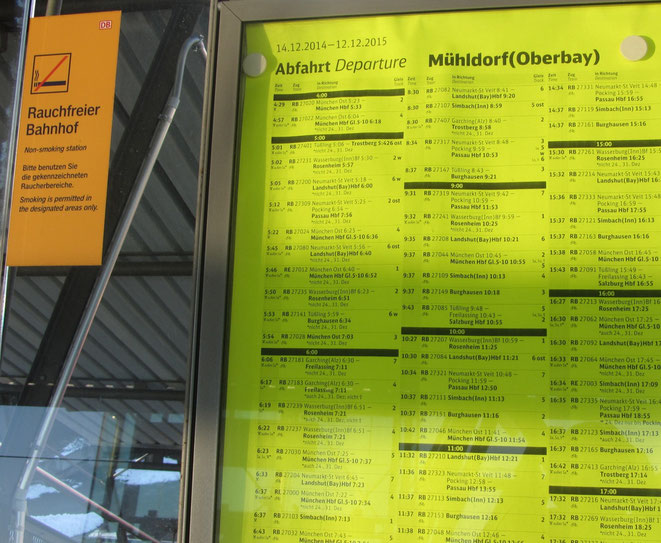by Hermann Kracke
On time - one of the answers that usually come up first when asking people for unarguable requirements of successful business transactions in Germany. And yes, dealing with German business partners you have to deliver your product or service the time you have agreed upon. Period.
And here is why:
Something that is delayed a German will quickly consider unreliable and unreliable in the German business world is even worse than not being on-time (though often seen as just one kind of unreliable and thus sometimes the same thing).
We hate unreliable products, service levels that have been promised but then do not work the way they are supposed to, service providers that make us wait.
Though appreciated (as anywhere) it does not have to be as fast as possible all the time either (provided you make something of quality or otherwise work thoroughly) but you should meet the date and time you said you would. An example:
An indignant man
If I am waiting for the bus at a bus stop in Munich and it does not come the minute it is expected to - literally, if on a German schedule it says the bus will stop at this point at 11:37 a.m. then a German will expect the bus to come around the corner at 11:37 a.m. and not at 11:38 or 11:39 - I will soon start shifting my weight from one foot to the other, nervously keep checking my watch every 20 seconds and immediately search for reasons why this stupid bus could be so damn late on this day.
If it still has not come a full ten minutes later then, I feel like my day is ruined and I have probably already pre-phrased three different versions of a detailed letter in my head I plan to send to the director of the transport company informing him about this unbearable shortcoming of his service I have had to experience today. I will seriously make a mental note to find out who that gentleman actually is, at least until the bus finally does arrive.
Deutsche Bahn - a common perception...
Or this one: A German railways train will officially be considered on time as long it reaches the point in question within 5 minutes and 59 seconds.
This means any train that arrives exactly 6 minutes behind schedule you can in Germany justifiably call “delayed”.
And if there is one safe topic for any transport related small talk you will ever want to have - it is the late arrival of Deutsche Bahn trains. Oh how we love Deutsche Bahn bashing out here - and very difficult to run into somebody who will not readily give you a vivid account of the last intolerable waste of time Deutsche Bahn just recently made him suffer. And how bad and all it really was.
... and a sober view closer to reality
Now to everybody who is not from this country but has ever traveled by train in Germany this may sound a little bit confusing as German trains usually run perfectly on time and even several connections in a row almost always work like a charm.
Sure enough more than 94% of the 30,000+ daily trains on average run on schedule.
Though this will be met by a lot of disapproval by my fellow citizens I even dare to say that Germany, in fact, has one of the most precise passenger rail systems in the world - it’s just that
Germans resent the idea of being kept waiting for a promised service or having to change their plans somewhat so much - that they find a train pulling in delayed simply beyond all bearing.
Take-away: Time Management
As a service provider catering to German partners you therefore want your processes to be on time whenever possible (without allowing any compromises on quality). That is by the time that has been agreed for it explicitly, not 10 minutes later, not 5 minutes later - on time or before.
If you cannot deliver on time or meet the agreed deadline make it a rule at your end to notify your German partner as early as you can about the expected delay.
This will not be great - but at least they will be able to adjust their intricate planning mechanisms to the new situation.
It will give them Planungssicherheit as we say here. Another German peculiarity of similar importance which I am addressing in another article of this series here.
If you need to adjust the delivery time of your process permanently do seek a new or updated arrangement formally. Do not allow yourself to let the ‘new normal’ sink in quietly. Otherwise your German customer will more often than not later insist on what was agreed in the first place.
Seize a hidden opportunity
The good news is German companies are aware of how important they rank punctuality and do usually - until proven the opposite - not (truly) expect that business partners from other countries will live up to their standard the same way an established German partner would.
That said if you ensure you deliver your service on time, every time - you will stand out in the perception of your customer.
And if that becomes the rule rather than the exception they will honestly appreciate how well you understand their business needs and acknowledge that you have come prepared to go the extra mile for them.




Write a comment